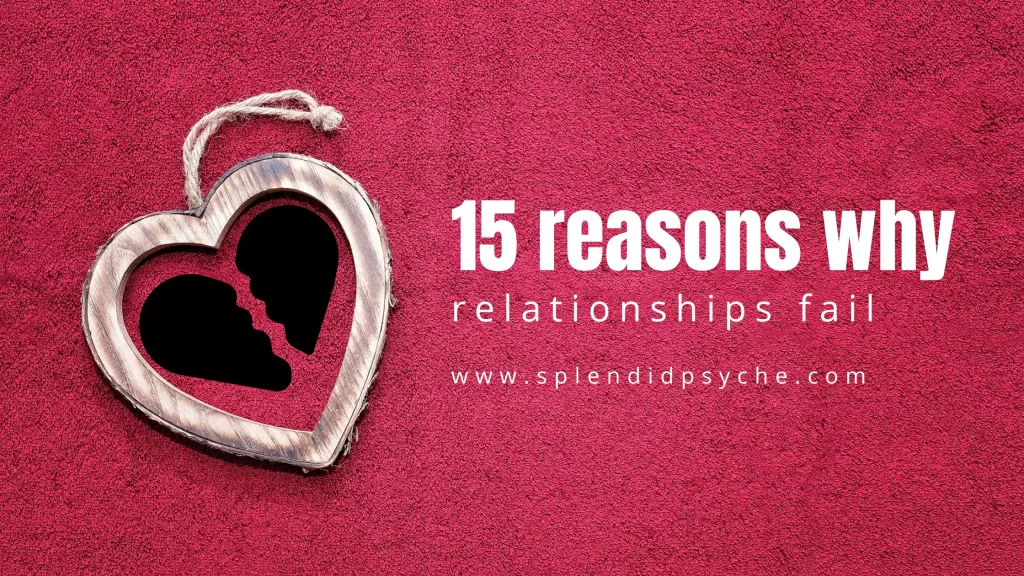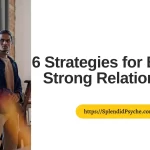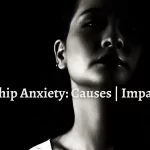Why Relationships Fail?
Before we talk about the reasons relationships fail, let’s understand that relationships are a beautiful, rewarding part of life, but they don’t come without their challenges. Even once you’ve found that special someone, making a relationship thrive over the long-term can be incredibly difficult. Unfortunately, the sad truth is that many relationships ultimately fail.
If you’re struggling to understand the reasons relationships fail in your own life, you’re not alone. Relationship experts have identified numerous potential root causes that can contribute to a couple breaking up or divorcing. By understanding some of the most common reasons relationships fail, you can work on spotting the warning signs and course-correcting before it’s too late.

15 Reasons Relationships Fail
So what are some of the top reasons relationships fail? Let’s take a look at 15 frequent culprits behind failed relationships:
- Lack of Trust: Trust is the bedrock foundation that any healthy, stable relationship needs to be built upon. Once that trust has been broken, it can be extremely difficult to regain and move forward. Whether it’s dishonesty, infidelity, constant white lies, or just a general atmosphere of suspicion, lack of trust is one of the reasons relationships fail and will sabotage a relationship every time.
- Poor Communication: Having the ability to effectively communicate with your partner is critical for a successful long-term relationship. If you find that one or both partners consistently bottle up their feelings, give the silent treatment, or struggle to really listen to the other person’s perspective, resentment can easily build. Healthy communication that allows you to understand each other is key.
- Unrealistic Expectations: Many relationships fail because of unrealistic expectations placed upon one’s partner or the relationship itself. Maybe you have an idea of how your partner “should” behave that just isn’t reasonable. Or perhaps you bought into society’s picture of how relationships are “supposed” to be. Having a balanced, realistic perspective is important.
- Lack of Intimacy: Physical and emotional intimacy allow partners to build closeness and a strong bond. Without that intimate connection, a relationship can slowly BUT SURELY turn into more of a friendship or even a roommate situation over time. Intimacy struggles, one of the key reasons relationships fail, that aren’t addressed can doom a relationship.
- Infidelity: This one is obvious – very few relationships can recover after one partner has been unfaithful. Infidelity, whether physical or emotional, decimates the trust and intimacy that a couple has built. In many relationships, cheating is an unforgivable violation that leads to an inevitable breakup.
- Money Issues: Financial problems and clashing attitudes about money cause an enormous amount of stress in relationships. If one partner is a spendthrift and the other is frugal, if you can’t agree on budgets and spending priorities, or if debt and lack of financial security become overwhelming – all of these money reasons can tear a couple apart.
- Constant Conflict/Fighting: This is one of the many reasons relationships fail. All couples fight and argue occasionally – it’s normal and healthy to a degree. However, when every disagreement escalates into explosive fights, when issues never get resolved, and the conflict becomes constant, a relationship will suffer. Recurring patterns of fighting without resolving issues are one of the biggest reasons why relationships fail.
- Lack of Effort: Successful relationships require constant work and effort from both partners to keep things going strong. When one or both people start taking their partner or the relationship for granted, stop making an effort, and let complacency set in, things deteriorate. A relationship can’t succeed on auto-pilot.
- Jealousy/Insecurity Issues: While a little jealousy can even be expected at times, unhealthy levels of jealousy, insecurity, and possessiveness can destroy a relationship. When there’s a lack of self-confidence and trust that causes someone to constantly question their partner’s faithfulness and fidelity, it creates an unbearable environment to sustain a healthy relationship.
- Different Life Goals/Priorities: Relationships have the best shot at lasting when both people are on the same page about their goals, values, lifestyle, and priorities in life. However, many relationships fail because one partner wants to settle down and the other wants to keep their freedom. Or maybe careers, having kids, where to live, and other big life goals clash. Being aligned is crucial.
- Addiction Issues: Alcohol and substance abuse issues can place an incredible strain on even the strongest relationship. In addition to all the associated lying and untrustworthy behavior, addiction also often makes a partner unavailable emotionally or able to provide an equal share of effort. Addiction is one of the reasons relationships fail that is very difficult to overcome.
- Lack of Physical Attraction: While physical attraction shouldn’t be the only basis for a relationship, it is still an important factor that keeps the passion and intimacy alive long-term. A lack of physical chemistry, losing that spark, or simply losing physical attraction over time are reasons many relationships fail down the road.
- Compatibility Issues: There are many areas where compatibility matters – sense of humor, interests/hobbies, intelligence levels, values, conflict resolution styles, social habits, affection needs, and much more. While opposites can definitely attract, being too incompatible in multiple core areas increases the chances of a relationship failing long-term.
- Family/Cultural Divides: Sometimes outside influences like vastly different family backgrounds, cultures, or religions create conflict that tears a couple apart. Perhaps values or obligations established by family units lead to a difference in lifestyles or future planning that cannot be reconciled. Family interference and clashes can absolutely be reasons a relationship fails.
- Emotional/Physical Abuse: And finally, relationships that involve any kind of emotional or physical abuse are doomed to fail – period. Abuse destroys trust, intimacy, and self-confidence, creating unimaginable toxicity from which a relationship cannot recover. The first thing that should come first is leaving an abusive relationship.
The reasons relationships fail may seem complex and diverse, but they all share one core truth – relationships require consistent care and work from both partners to remain healthy and mutually fulfilling over the long haul. Complacency and lack of effort will cause almost any relationship to deteriorate over time.
By understanding these 15 common reasons why relationships fail, you can hopefully spot the red flags and warning signs before it’s too late. More importantly, you can be proactive about addressing issues before they completely sabotage your relationship. Good communication, mutual understanding and respect, effort from both partners, and routinely stoking the fire are all critical components to any successful, enduring relationship.
You should read our self improvement articles on how to be a better partner in a relationship.
Frequently Asked Questions
What causes failure in a relationship?
There are many potential causes of relationship failure, but some of the most common include lack of trust, poor communication, unrealistic expectations, lack of intimacy/closeness, infidelity, financial problems, constant conflicts/fighting, complacency and lack of effort, jealousy/insecurity issues, differing life goals and priorities, substance abuse issues, lack of physical attraction, overall incompatibility, family/cultural divides, and any form of emotional or physical abuse. At their core, relationships fail when the needs of one or both partners are not being met, resentment builds, intimacy fades, and the underlying bond erodes over time.
When to end a relationship?
There’s no single definitive sign for when it’s time to end a relationship, as each situation is unique. However, some potential indicators it may be time to move on include a complete breakdown of trust and communication, an inability to resolve constant fighting/conflicts, lost feelings of intimacy and closeness, fundamental incompatibilities in core values or life goals, an unwillingness from one partner to address issues like addiction or abuse, or a situation where you simply realize you’ve grown apart into fundamentally different people. Trying counseling can help get clarity, but sometimes accepting the relationship has grown too unhealthy is necessary.
How do you fix a failing relationship?
If both partners are willing to put in the effort, there are steps you can take to potentially fix a failing relationship. Improved, open communication is critical, as is regaining trust through complete honesty and transparency. You may need to revisit core issues like differing life goals or intimacy problems and find healthy compromises. Counseling can provide invaluable tools for conflict resolution, reestablishing intimacy, and learning how to meet each other’s needs. However, fixing a failing relationship requires a genuine desire from both people to change their negative patterns and behaviors.
What is the biggest failure in a relationship?
While every relationship has its own complexities, the biggest potential failure is an inability or unwillingness of one or both partners to nurture the relationship through ongoing care, communication, intimacy, and effort. Allowing the fire to completely die out by taking your partner for granted, neglecting their needs and priorities, losing the ability to empathize with them, and letting resentment fester is a fatal failure. Successful relationships require constant tending – the biggest failure is allowing that gardening to stop completely.
At what stage do most relationships end?
Research suggests that the period between the 6 month and 2 year mark is often when the initial passionate spark starts to fade and many relationships hit their first crisis point. This is the stage where qualities like selfishness, lack of communication, and complacency often start to set in. Meanwhile, the 7 year itch around years 5-7 of a relationship is another common make-or-break stage, likely due to increased life stresses like careers, kids, or general ruts setting in. However, relationships can end at any point if core needs go unmet.
What sinks relationships?
Some of the biggest factors that can sink an otherwise positive relationship include a breach of trust through infidelity or lies, a severe inability to resolve conflicts in a healthy manner, an addiction that takes priority over the relationship, emotional or physical abuse, wildly mismatched life goals, completely fading intimacy and physical attraction, and an overall loss of care or effort from one or both partners. All of the above mentions can be one of the reasons relationships fail. At the end of the day, the things most likely to sink a relationship are issues that destroy the foundation of trust, intimacy, teamwork and mutual respect.



